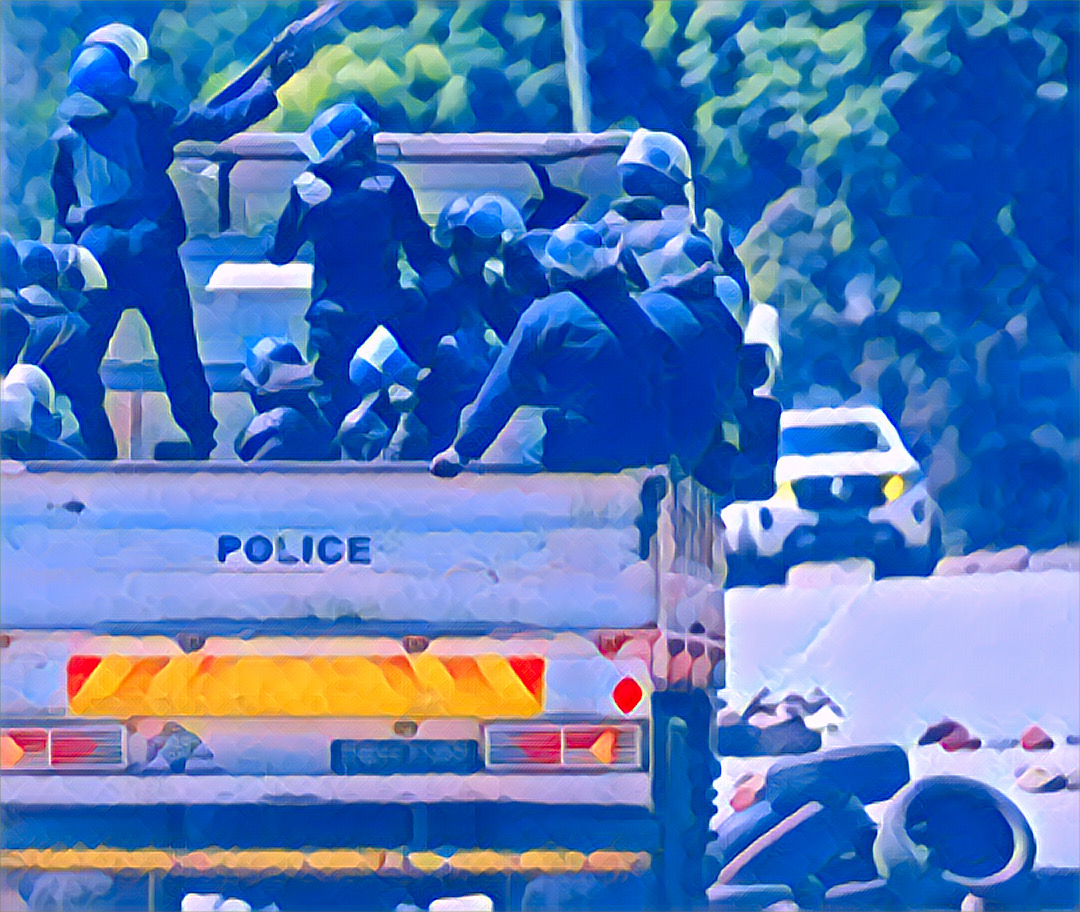KEY POINTS
- Zimbabwe security forces suppressed nationwide protests against President Mnangagwa’s proposed term extension, leaving cities deserted amid business closures and sporadic clashes.
- Rebellion by liberation war veterans exposes deepening rifts in the ruling party, with analysts noting their potential to mobilize broader dissent against constitutional changes.
- The political turmoil threatens Zimbabwe’s economic stabilization efforts and foreign investments, while drawing cautious responses from regional and international partners.
Zimbabwean authorities deployed riot police across major urban centers on Monday, effectively suppressing planned nationwide protests against the controversial bid of President Mnangagwa.
Reuters reports that the heavy security presence turned Harare‘s streets into ghost towns as businesses shuttered preemptively, though isolated clashes erupted in the capital’s western suburbs.
“The situation in the country is peaceful,” police claimed in an official statement that belied scenes of officers firing tear gas at demonstrators chanting “we reject 2030!”—a reference to the ruling ZANU-PF party’s January proposal to prolong Mnangagwa’s final term by two years. The 81-year-old leader, who took power after Robert Mugabe’s 2017 ouster, faces mounting dissent from former allies, including liberation war veterans who once bolstered his regime.
Economic paralysis gripped the nation as schools, markets, and transport networks closed. In Bulawayo, the country’s second-largest city, armored vehicles patrolled deserted thoroughfares while shop owners reinforced storefronts—a familiar precaution in a nation where political rallies often turn violent. “Those in power have reason to fear,” noted political analyst Ibbo Mandaza. “The stay-away is a massive statement by the masses of Zimbabwe.”
Mnangagwa: Veterans’ betrayal exposes ruling party rifts as opposition weakens
The aborted protests reveal deepening fractures within ZANU-PF’s traditional support base. Blessed Geza, leader of the Zimbabwe National Liberation War Veterans Association, had mobilized followers through social media after accusing Mnangagwa of “clinging to power through proxies.” Yet Geza fell conspicuously silent as Monday’s demonstrations collapsed, leaving analysts to speculate about possible detentions or backroom negotiations.
The veterans’ rebellion carries symbolic weight in a nation where independence fighters still command moral authority. Their defection compounds challenges for Mnangagwa, whose government faces economic collapse—the Zimbabwean dollar has lost 80% of its value this year—and growing international isolation. With opposition parties crippled by infighting and state repression, the veterans emerge as an unlikely opposition force. “They’re filling a vacuum,” said University of Zimbabwe political scientist Eldred Masunungure. “When the liberators become the oppressed, even apolitical citizens take notice.”
Constitutional scholars warn that extending Mnangagwa’s term would violate Article 91 of Zimbabwe’s 2013 constitution, which imposes a two-term limit. Mnangagwa has publicly denied ambitions to stay beyond 2028, but his loyalists in parliament have begun circulating amendment proposals. “This isn’t about one man,” argued ZANU-PF spokesman Christopher Mutsvangwa. “We need continuity to complete our economic reforms.” Critics counter that the move mirrors authoritarian maneuvers seen across southern Africa, from Namibia’s term-lift debate to Mozambique’s constitutional tweaks.
Monday’s protests against Mnangagwa reverberated across financial markets, with Zimbabwe’s stock exchange suspending trading as the blue-chip Industrial Index plunged 12%. The unrest threatens to derail a fragile IMF staff-monitored reform program and jeopardizes plans to reintroduce the Zimbabwean dollar as sole legal tender—a policy already opposed by businesses relying on U.S. dollar transactions.
Neighboring governments monitored the situation closely. South Africa’s Foreign Ministry called for “peaceful political dialogue,” while China—Zimbabwe’s largest creditor—reportedly delayed signing a $2 billion lithium mining deal. The European Union condemned the police deployments, with spokesperson Nabila Massrali stating: “Fundamental freedoms must be upheld during this sensitive period.”
As night fell, Harare residents described an uneasy calm. “We’re tired of being pawns in these power games,” said vendor Tendai Moyo, whose vegetable stall remained closed. “But when war veterans speak, even the stones listen.” With ZANU-PF’s annual conference approaching in December, observers predict intensified jockeying between reformists and hardliners—a struggle that could determine whether Zimbabwe holds credible elections in 2028 or descends into prolonged crisis.


